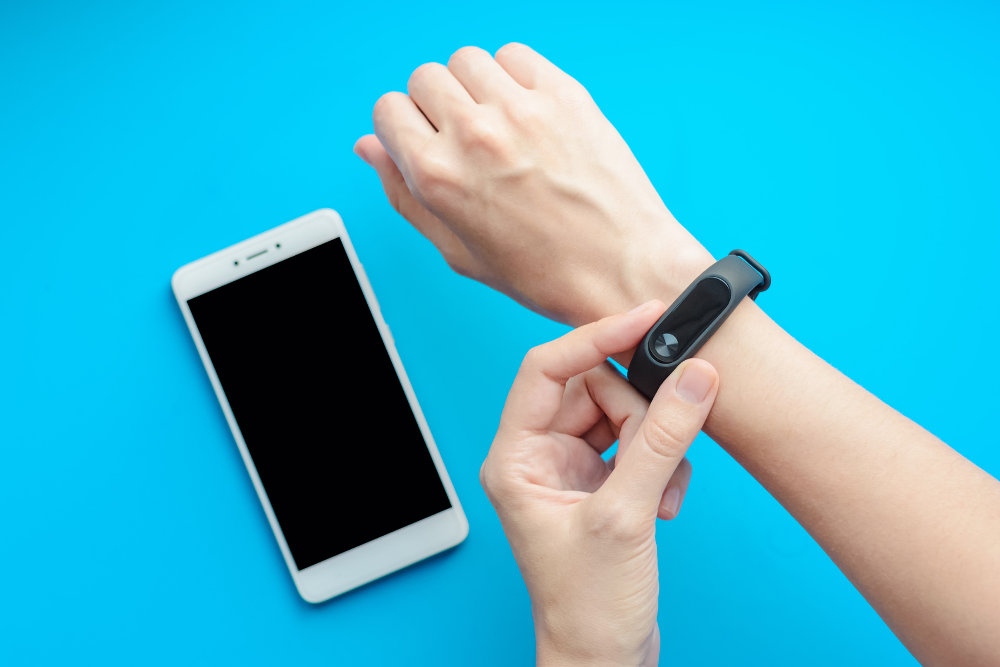What’s the hype on wearable fitness trackers?
The ability to track your overall wellness is now more important than ever: measuring data relating to recovery, sleep and activity can empower you to take better control of your health and wellbeing.

The ability to track your overall wellness is now more important than ever: We live in a world where we want to know all we can about our health. We used use fitness trackers like Fitbit, Garmin, Apple Watch, etc. to track our steps, calories burned and overall active minutes throughout the day. I even think back to when I first started wearing a Fitbit and my friends and I would compete on who could get the most steps in a day.
Now, wearables and fitness trackers now can track so much more. My favorites include the Oura Ring, Whoop Strap, Fitbit Versa 2 and even the Apple Watch. But what makes these new gadgets so good? And why are they important for your overall health and wellness?
Let’s start with what is important for these trackers to measure. The three major tracking buckets these wearables dig into are recovery, sleep and activity. Each device has its own way of presenting the data, but there is consistency between them.
A comprehensive score formulated by several metrics provides data on your body’s recovery. It focuses on how well your body, specifically your automimic nervous system, returns to its baseline and manages both physical and mental stress imparted on it. You can think of this as a score on how ready you are to take stress on during the day. Metrics include:
- Body Temperature
- Heart Rate Variability (HRV)
- Respiratory Rate (RR)
- Resting Heart Rate (RHR)
Sleep is a vital measure assessed by many of the current wearable/fitness trackers. It is a major aspect of our lives where our body regenerates and heals from its stressors. Many wearables compile most of their data during this time since the body is in the most constant state. Metrics include:
- Total hours of sleep
- Bedtime
- Wake-up time
- Deep sleep
- REM sleep
- Stages of sleep
- Sleep efficiency
Activity is one of the earliest metrics that fitness trackers have kept a read on. Based on recovery and sleep, the trackers establish specific needs for activity, . providing guidance on too much, too little or just the right amount of activity. Metrics include:
- Steps
- Calories burned
- Inactive time
- Walking distance
Now once you have the device and have worn it for a few weeks to get some baseline data, what can you do with it? Think about being able to have a snapshot each day into your health. Having access to health data like your RHR, HRV and more are personal to you. You can use this data and see how different things such as alcohol, decreased sleep, stress from work and daily meditation or deep breathing can affect your health and wellbeing.
By looking into your metrics, you will be able to see causes and effects for the fluctuations in your metrics. Heart rate variability should be high when you recover properly and can take on more stress. At the same time, resting heart rate should be low, which indicates your heart is not working too hard. For example, I have been able to see how carving out five to 10 minutes a day of daily deep breathing has helped to improve my heart rate variability and decrease my overall resting heart rate while sleeping.
Most importantly, given the current situation with COVID-19, you can get advanced notice of a possible onset of illness. If your body begins to come down with an infection or is greatly taxed, you will notice a decrease in heart rate variability and an increase in resting heart rate. This, along with other metrics over time, is what some wearable companies are using to begin studying patterns of onset and later symptoms of COVID-19, according to Forbes.
With some consistent monitoring and willingness to make changes to your lifestyle when needed, there is an amazing amount of information in the hands of the fitness or wellness wearables user. I hope that this has provided you with insight into the wearable realm and sparked some interest in optimizing your health. These devices, along with some guidance on their metrics and how to make modifiable changes, allows people to empower themselves to live better lives.
RECENT POSTS
CATEGORIES

> Privacy Practices
> Terms and Conditions
Copyright © Performance 2022.
All rights reserved.
JOIN OUR COMMUNITY
Sign up for our mailing list to learn more about Performance, stay up-to-date on our offerings, and receive our newsletter.
Digital Marketing by Rebel Interactive Group
